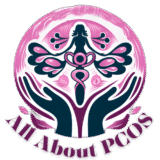PCOS symptoms are a crucial aspect to consider for women of reproductive age affected by Polycystic Ovary Syndrome (PCOS), a prevalent hormonal disorder. This syndrome is characterized by the presence of multiple cysts in the ovaries and can lead to a range of symptoms that significantly impact a woman’s health and well-being. In this article, we will delve into the most common symptoms of PCOS, outline key indicators to watch for, and offer advice on managing these symptoms effectively.
1. Irregular Menstrual Cycle
PCOS, which stands for Polycystic Ovary Syndrome, is a medical condition that affects hormones and causes a range of symptoms that affect a significant number of women during their reproductive years. A key symptom of this condition is the irregular menstrual cycle, a problem faced by many women diagnosed with PCOS.

The menstrual cycle, typically lasting around 28 days, can vary significantly in women with PCOS. Some may experience prolonged cycles, while others might have fewer periods in a year. The irregularity in the menstrual cycle is primarily due to hormonal imbalances associated with PCOS. In a normal cycle, the ovaries release an egg each month as part of a healthy reproductive process. However, in PCOS, this ovulation process is often disrupted.
Hormones play a crucial role in regulating the menstrual cycle. Women with PCOS usually have an imbalance in hormones like estrogen, progesterone, and testosterone. Particularly, they might have higher levels of androgens (male hormones), which can lead to various symptoms, including menstrual irregularities. This imbalance can prevent the ovaries from releasing eggs regularly, leading to missed or irregular periods.
Moreover, insulin resistance is commonly observed in women with PCOS. This condition, where the body’s cells become less responsive to insulin, can exacerbate hormonal imbalances. High insulin levels can cause the ovaries to produce more androgens, further disrupting the menstrual cycle.
The impact of an irregular menstrual cycle in PCOS is not just limited to reproductive health. It can also influence other aspects of health and lifestyle. For instance, irregular periods can make it challenging to predict ovulation, complicating efforts to conceive. Additionally, irregular menstruation can be an indicator of other health issues like endometrial hyperplasia, where the lining of the uterus becomes too thick.
Understanding the link between PCOS and menstrual irregularities is crucial for women dealing with this condition. Recognizing these symptoms early on can lead to prompt and effective management. Lifestyle changes, such as maintaining a healthy weight, exercising regularly, and eating a balanced diet, can help regulate the menstrual cycle and manage PCOS symptoms. Medical treatments, including hormonal birth control and medications for insulin resistance, may also be recommended to help regulate the menstrual cycle and balance hormone levels.
Women experiencing irregular menstrual cycles, especially in conjunction with other symptoms of PCOS, should consult a healthcare provider for a comprehensive evaluation and appropriate management strategies.
2. Excessive Hair Growth
Excessive hair growth, medically termed hirsutism, is a frequent and often distressing symptom of Polycystic Ovary Syndrome (PCOS). This condition leads to unwanted hair growth in areas typically associated with male hair patterns, such as the chest, back, face, and abdomen. The root cause of this symptom in PCOS is the elevated levels of androgens, which are male hormones present in both genders but usually in lower levels in women.

Androgens, including testosterone, play a pivotal role in hair growth. In PCOS, the ovaries produce an excess of these hormones, leading to hair growth in unusual areas for women. This condition can vary in severity, with some women experiencing mild hair growth and others dealing with more pronounced hirsutism.
Dealing with this symptom requires a multifaceted approach. Treatment options include:
- Laser Hair Removal: This method uses concentrated light to target and damage hair follicles, reducing hair growth. It’s effective but may require multiple sessions.
- Medication: Certain medications can help manage hirsutism. These might include birth control pills to regulate hormone levels or anti-androgens that block the effects of male hormones.
- Other Hair Removal Techniques: These can range from shaving and waxing to more permanent methods like electrolysis, which destroys hair follicles with electrical currents.
However, it’s not just about removing unwanted hair. The psychological impact of hirsutism on women with PCOS is significant, often leading to feelings of embarrassment and impacting their self-esteem. Therefore, it’s crucial to address the emotional aspects of hirsutism as part of the treatment plan.
Consulting with a dermatologist or an endocrinologist is vital in managing hirsutism. These specialists can offer personalized advice based on your medical history and the severity of your symptoms. They may also recommend lifestyle changes like diet modifications or weight management, as these can influence hormone levels and potentially reduce symptoms.
An essential part of managing PCOS and hirsutism is understanding that treatment is a long-term process. It often involves ongoing efforts and potentially multiple treatment modalities. With the right approach, women with PCOS can effectively manage excessive hair growth, improving both their physical appearance and overall quality of life.
While challenging, excessive hair growth in PCOS is a manageable condition. With a combination of treatments and professional guidance, women can navigate this symptom more comfortably, enhancing both their physical health and emotional well-being.
3. Acne and Skin Issues
Polycystic Ovary Syndrome (PCOS) often brings a range of symptoms, with acne and skin issues being notable among them. The connection between PCOS and skin problems, primarily acne, is closely tied to the hormonal imbalances characteristic of this condition. In PCOS, hormonal fluctuations can lead to increased sebum production, the oil produced by the skin. This excess sebum and dead skin cells can clog pores, creating an environment where bacteria thrive, leading to acne.

Furthermore, PCOS often results in a type of acne that is more persistent and challenging to treat. It typically appears in the lower third of the face, jawline, and chin – areas sensitive to hormonal changes. Apart from acne, women with PCOS might also experience other skin issues like oily skin, dark patches, or skin tags.
A tailored skincare routine is essential to manage acne and other skin concerns associated with PCOS effectively. Critical components of this routine should include:
- Gentle Cleansing: Using a mild cleanser helps remove excess oil and dirt without over-drying the skin.
- Exfoliation: Regular exfoliation helps to unclog pores and remove dead skin cells, but it’s crucial to use gentle exfoliators to avoid irritating the skin.
- Non-comedogenic Products: These are products formulated not to block pores. Using non-comedogenic moisturizers and makeup can help prevent acne flare-ups.
- Sun Protection: Sunscreen is vital to protect the skin, especially if you’re using acne treatments that make the skin more sensitive to sunlight.
Professional guidance from a dermatologist can further enhance your skincare regimen. Dermatologists can provide:
- Topical Treatments: These may include retinoids, benzoyl peroxide, or salicylic acid, which help to reduce acne by unclogging pores and reducing inflammation.
- Oral Medications: In some cases, oral medications like birth control pills or anti-androgens can help balance hormones and reduce acne.
- Lifestyle Advice: Diet and lifestyle changes can also impact skin health. A balanced diet, regular exercise, and stress management can help regulate hormones and improve skin condition.
Collaborating with a dermatologist is particularly beneficial as they can offer personalized treatments based on your specific skin type and the severity of your acne. They can also monitor your progress and adjust the treatment plan as needed.
Dealing with PCOS-related acne and skin issues involves understanding the hormonal basis of these problems and adopting a comprehensive skincare approach. While challenging, achieving clearer and healthier skin with the right strategies and professional support is possible.
4. Weight Gain and Difficulty Losing Weight
Among the various PCOS symptoms, weight gain and difficulty losing weight are especially common and challenging. The hormones most impacted in PCOS, including insulin, can influence how the body processes glucose and stores fat, often leading to weight gain, particularly around the abdomen.

Abdominal weight gain is not just a cosmetic concern. It is also associated with an increased risk of various health issues, including insulin resistance, type 2 diabetes, heart disease, and other metabolic conditions. Therefore, addressing weight gain in PCOS is not only about improving appearance but also about enhancing overall health.
Effective weight management in PCOS involves a combination of lifestyle changes:
- Balanced Diet: A diet rich in whole foods, fruits, vegetables, lean proteins, and whole grains can help manage weight and regulate insulin levels. Processed foods, high in sugar and unhealthy fats, should be minimized.
- Regular Exercise: Exercise is crucial in managing PCOS-related weight gain. A mix of cardio and strength training exercises can help burn calories, build muscle, and improve insulin sensitivity. Even moderate activities, like brisk walking, can make a difference.
- Stress Management: High-stress levels can exacerbate PCOS symptoms, including weight gain. Techniques like yoga, meditation, and deep breathing can help reduce stress.
Consulting with healthcare professionals, such as a registered dietitian or a doctor specializing in PCOS, can provide additional support. They can offer:
- Personalized Dietary Plans: Tailored to your specific needs and preferences, helping to manage weight and PCOS symptoms more effectively.
- Professional Guidance on Exercise: Advice on the types and intensity of exercises that might work best for your body and lifestyle.
- Medical Management: If necessary, medications to manage insulin resistance or other PCOS-related health issues can be prescribed.
Managing weight with PCOS is often a gradual process, and it’s important to set realistic goals and expectations. Small, sustainable changes in diet and lifestyle are more effective in the long term than drastic, short-term measures.
Overall, while weight gain in PCOS is a common issue, it is manageable with the right strategies and support. Understanding the role of hormonal imbalances in weight changes and adopting a holistic approach to lifestyle changes can lead to improved health outcomes for women dealing with PCOS.
5. Mood Swings and Mental Health Concerns
Polycystic Ovary Syndrome (PCOS) is not only a physical health condition but can also significantly impact mental health. Mood swings and mental health concerns are significant PCOS symptoms, often reported by many women struggling with this syndrome. These emotional challenges are multifaceted and often stem from the complex interplay of hormonal imbalances and the psychological stress associated with managing the symptoms of PCOS.

Hormonal imbalances, a hallmark of PCOS, can directly affect mood and emotional stability. Fluctuations in hormones such as estrogen and progesterone can influence neurotransmitters in the brain, leading to mood swings or emotional distress. Additionally, the high levels of androgens (male hormones) seen in PCOS can also contribute to mood changes.
Beyond hormonal factors, women with PCOS often face challenges related to their self-image and self-esteem. The physical symptoms of PCOS, such as weight gain, acne, and excessive hair growth, can significantly impact how a woman perceives herself, leading to feelings of anxiety and depression. The stress and frustration of dealing with these visible symptoms and the often challenging process of seeking effective treatment can further exacerbate mental health issues.
Moreover, the link between PCOS and mental health goes beyond mood swings. The condition can contribute to a chronic state of stress and anxiety, particularly regarding fertility issues, long-term health concerns, and the management of symptoms.
To address these mental health concerns, prioritizing emotional well-being is essential. Seeking support is a critical step in managing the mental health aspects of PCOS. This support can come from various sources:
- Therapy or Counseling: Speaking with a therapist or counselor, especially those who specialize in women’s health, can provide a safe space to discuss emotional challenges. They can offer coping strategies and therapeutic techniques tailored to individual needs.
- Support Groups: Joining a PCOS support group can connect women with others who understand and share similar experiences, providing a sense of community and mutual support.
- Holistic Approach: Integrating stress management practices like mindfulness, meditation, and regular physical activity can improve overall mental well-being.
- Open Communication: Discussing concerns with loved ones or healthcare providers can help understand and manage the emotional aspects of PCOS.
It’s important to recognize that mental health is as crucial as physical health in the context of PCOS. Acknowledging and addressing emotional concerns is a vital part of managing this condition. While hormonal and physical symptoms are often the focus of PCOS treatment, providing equal attention to mental health can lead to a more comprehensive and effective management of the condition.
6. Fertility Issues
Fertility issues, a major concern among PCOS symptoms, highlight Polycystic Ovary Syndrome as a leading cause of infertility. The connection between PCOS and infertility primarily lies in the hormonal imbalances and irregularities in ovulation that are characteristic of this condition. In PCOS, the ovaries may not release eggs regularly or may not release a mature egg at all, which can make natural conception challenging.

The hormonal imbalances in PCOS can disrupt the normal menstrual cycle, making it difficult to predict ovulation – a key factor in timing conception. This irregular ovulation is often the reason why women with PCOS might take longer to become pregnant or require assistance to conceive.
For women trying to conceive and suspecting PCOS as a contributing factor, consulting with a fertility specialist is a crucial step. Fertility specialists can thoroughly assess fertility health and offer guidance tailored to individual circumstances. They can also help diagnose PCOS if it hasn’t been identified.
Fertility treatments available for women with PCOS include:
- Medication: Drugs like Clomiphene Citrate (Clomid) or Letrozole (Femara) are often the first line of treatment. These medications stimulate ovulation, increasing the chances of conceiving.
- Assisted Reproductive Technologies (ART): Procedures like In Vitro Fertilization (IVF) can be effective for women who don’t respond to medication. IVF involves fertilizing an egg outside the body and then implanting it in the uterus.
- Lifestyle Changes: In some cases, lifestyle modifications like weight loss and dietary changes can improve fertility by regulating the menstrual cycle and enhancing ovulation.
- Insulin-sensitizing Drugs: For women with PCOS who also have insulin resistance, medications like Metformin can help improve insulin sensitivity, which might aid in restoring normal ovulation.
It’s important to note that PCOS doesn’t mean infertility. Many women with PCOS can and do conceive, either naturally or with medical assistance. The journey to conception with PCOS may require patience and various approaches, but with the right support and treatment, the chances of a successful pregnancy can be significantly increased.
Furthermore, addressing PCOS-related fertility issues often involves a comprehensive approach, including managing other PCOS symptoms and overall health, to create the best possible conditions for pregnancy. With advancements in fertility treatments and a better understanding of PCOS, more options are available than ever before for women with PCOS who wish to conceive.
Conclusion
Navigating PCOS symptoms is a unique journey for every woman, with the type and intensity of symptoms varying significantly. Recognizing and addressing these symptoms in a timely manner is critical for effective management and maintaining a good quality of life. If you identify with any of the symptoms discussed – be it irregular menstrual cycles, excessive hair growth, skin issues, weight management challenges, mood swings, or fertility concerns – it’s imperative to seek guidance from a healthcare provider. An accurate diagnosis and a tailored treatment plan are foundational to navigating PCOS successfully.
Understanding the complexities of PCOS is the first step in taking control of your health. Armed with knowledge and the right medical support, women with PCOS can manage their symptoms and lead fulfilling lives. Remember, PCOS is a manageable condition, and with proactive and consistent efforts, you can mitigate its impact on your daily life.
To further aid in your journey with PCOS, consider utilizing resources like the PCOS Prompt Journal, which is available on our website’s sidebar. This journal is designed to help you track your symptoms, treatment progress, and daily wellness practices. It serves as a valuable tool in understanding your body’s responses and patterns, making it easier to communicate effectively with healthcare providers and tailor your lifestyle choices accordingly.
Take charge of your PCOS journey. Explore the PCOS Prompt Journal today and embark on a path toward better health and well-being. For a deeper dive into the symptoms of PCOS read this next. Signs And Symptoms Of PCOS


